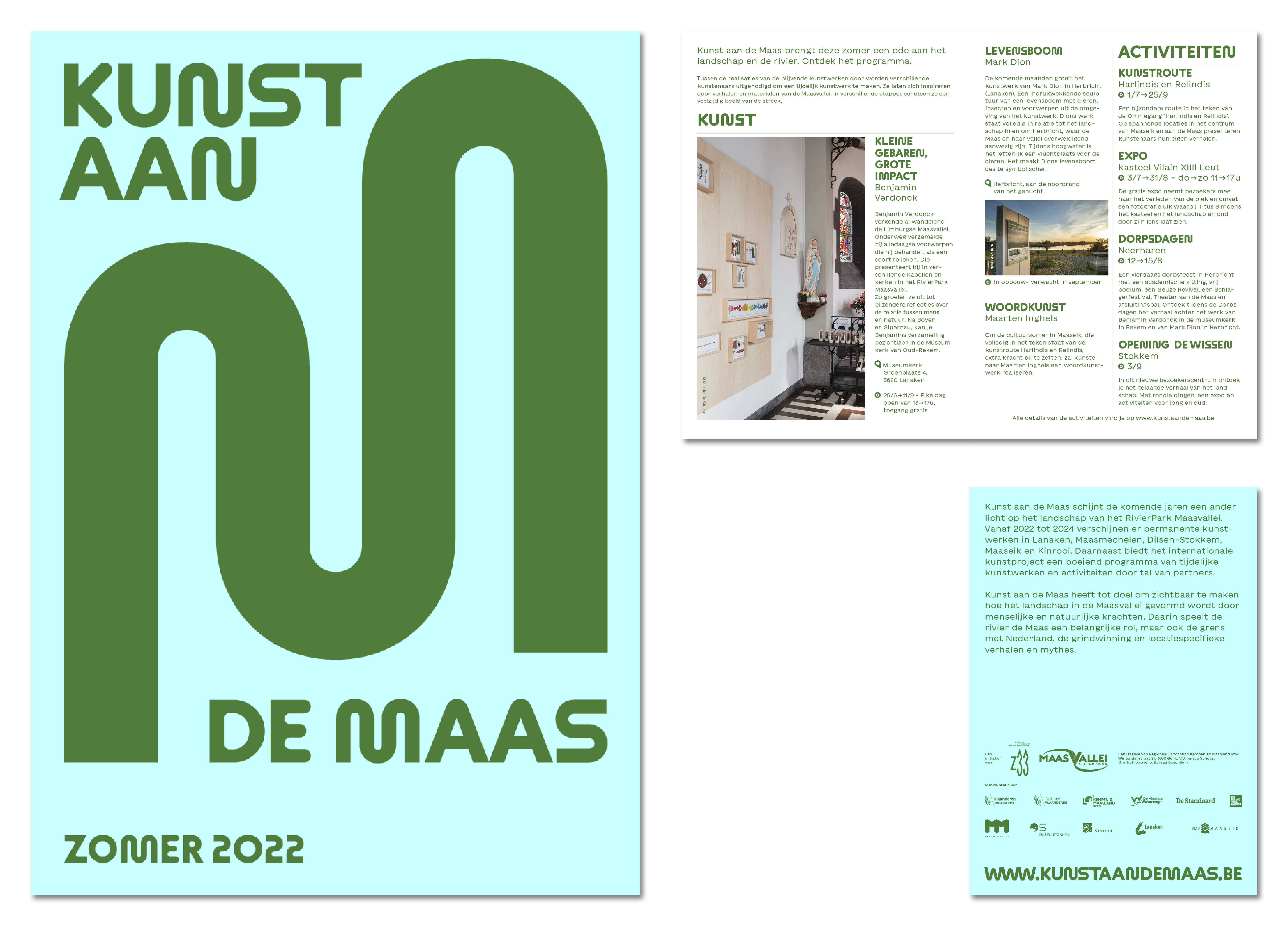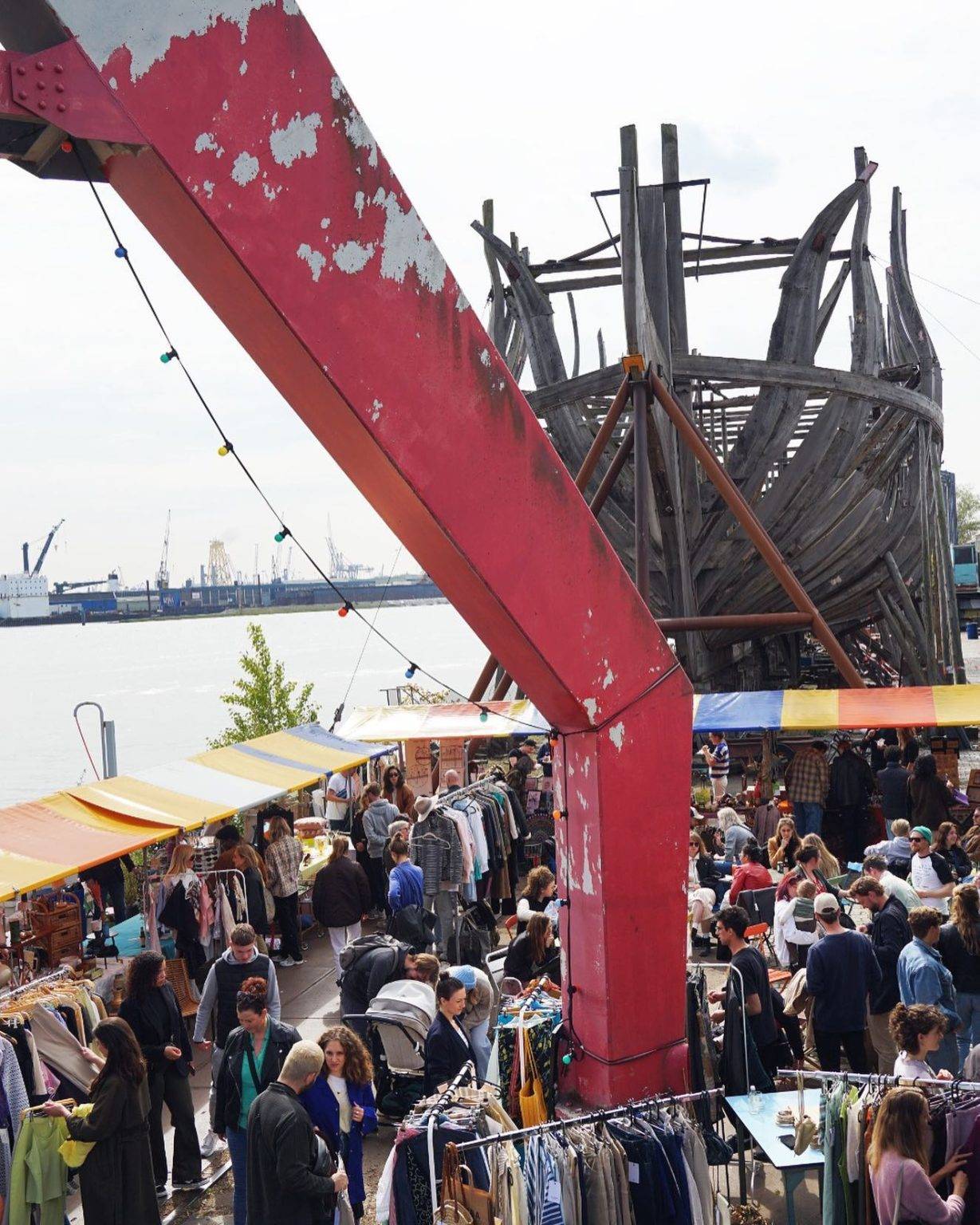Discover The Richness Of "Kaas Aan De Maas": A Deep Dive Into Dutch Cheese Culture
When it comes to culinary treasures, the Netherlands offers a treasure trove of delights, and "Kaas aan de Maas" stands as a shining example. This unique cheese festival and the region's rich cheese-making tradition have captured the hearts of cheese enthusiasts worldwide. If you're a cheese lover, this article will take you on an unforgettable journey through the flavors, history, and traditions of Dutch cheese-making centered around the "Kaas aan de Maas" event.
From its humble beginnings to its current status as an international cheese spectacle, "Kaas aan de Maas" has become a must-attend event for cheese aficionados. This celebration of Dutch cheese culture offers a glimpse into the rich history and vibrant traditions that have shaped the Netherlands' cheese-making heritage. As we delve deeper into this topic, you'll uncover the secrets behind the exquisite flavors and textures that make Dutch cheese so special.
This article will explore everything you need to know about "Kaas aan de Maas," from its historical roots to its modern-day significance. Whether you're planning a visit or simply want to learn more about this fascinating cheese tradition, you're in for a treat. Let's embark on this flavorful journey together!
Read also:Zach Templar Age Unveiling The Life Career And Contributions Of A Remarkable Figure
Table of Contents
- The Fascinating History of Kaas aan de Maas
- Traditional Dutch Cheese-Making Techniques
- What to Expect at the Kaas aan de Maas Event
- Exploring the Varieties of Dutch Cheese
- Health Benefits of Dutch Cheese
- Delicious Dutch Cheese Recipes
- Cheese Tourism in the Netherlands
- Sustainability in Dutch Cheese Production
- The Future of Dutch Cheese
- Conclusion: Why Kaas aan de Maas Matters
The Fascinating History of Kaas aan de Maas
Established in the early 2000s, "Kaas aan de Maas" quickly became a cornerstone of Dutch cheese culture. The event is held annually in Rotterdam, a city known for its vibrant food scene and historical ties to cheese trading. The festival celebrates the region's long-standing tradition of cheese production, which dates back to the Middle Ages.
The Maas River has played a crucial role in the development of Dutch cheese-making, serving as a vital trade route for centuries. This geographical advantage allowed Dutch cheese-makers to refine their craft and share their creations with the world. Today, "Kaas aan de Maas" continues to honor this legacy, drawing thousands of visitors each year.
Historical Significance of Dutch Cheese
Dutch cheese has a rich history that spans over 800 years. The Netherlands is renowned for its high-quality cheese, with Gouda and Edam being among the most famous varieties. According to the Dutch Cheese Association, cheese production in the Netherlands dates back to the 10th century, with the first cheese markets appearing in the 14th century.
Traditional Dutch Cheese-Making Techniques
Traditional Dutch cheese-making techniques have been passed down through generations, ensuring the authenticity and quality of Dutch cheese. These methods involve a meticulous process that begins with fresh milk and ends with perfectly aged cheese. The art of cheese-making in the Netherlands is a testament to the dedication and skill of its artisans.
Key Steps in Dutch Cheese-Making
- Milking: Fresh milk is collected daily from local farms.
- Curd Formation: Rennet is added to the milk to create curds.
- Pressing: The curds are pressed into molds to form the cheese.
- Aging: The cheese is aged for several weeks to months, depending on the variety.
What to Expect at the Kaas aan de Maas Event
Attending "Kaas aan de Maas" is an experience like no other. The festival offers a wide range of activities, from cheese tasting sessions to workshops led by expert cheese-makers. Visitors can also enjoy live music, food stalls, and interactive exhibits that showcase the history and culture of Dutch cheese.
One of the highlights of the event is the cheese market, where visitors can sample and purchase a variety of Dutch cheeses. From classic Gouda to unique goat cheese, there's something for every palate. The festival also features cheese-themed games and activities for children, making it a family-friendly destination.
Read also:Tom Skilling Family An Indepth Look Into The Legacy Of A Weather Icon
Why You Should Attend Kaas aan de Maas
Attending "Kaas aan de Maas" is not just about enjoying delicious cheese; it's about immersing yourself in the rich culture and history of Dutch cheese-making. The event offers a unique opportunity to connect with local cheese-makers, learn about their craft, and discover new flavors. It's a celebration of community, tradition, and culinary excellence.
Exploring the Varieties of Dutch Cheese
Dutch cheese comes in a wide variety of flavors and textures, each with its own unique characteristics. Some of the most popular varieties include:
- Gouda: Known for its smooth texture and rich flavor, Gouda is one of the most beloved cheeses worldwide.
- Edam: This spherical cheese is famous for its mild, nutty taste and firm texture.
- Maasdam: Often referred to as "Dutch Swiss cheese," Maasdam is characterized by its large holes and buttery flavor.
- Goat Cheese: Dutch goat cheese is celebrated for its tangy flavor and creamy texture.
Each variety offers a distinct taste experience, making Dutch cheese a favorite among cheese enthusiasts.
Regional Variations in Dutch Cheese
While Gouda and Edam are the most well-known Dutch cheeses, different regions in the Netherlands have their own specialties. For example, the province of Friesland is renowned for its creamy Friesian cheese, while the island of Texel produces a unique sheep's milk cheese. Exploring these regional variations adds depth to your understanding of Dutch cheese culture.
Health Benefits of Dutch Cheese
Dutch cheese is not only delicious but also offers numerous health benefits. It is an excellent source of calcium, protein, and essential vitamins such as vitamin B12 and vitamin K2. Studies have shown that consuming moderate amounts of cheese can contribute to strong bones, healthy teeth, and improved cardiovascular health.
Research published in the European Journal of Nutrition suggests that cheese consumption may help reduce the risk of osteoporosis due to its high calcium content. Additionally, the fermentation process used in cheese-making produces probiotics that support gut health.
Nutritional Value of Dutch Cheese
A single serving of Dutch cheese provides a wealth of nutrients, including:
- Calcium: Essential for bone health.
- Protein: Important for muscle development and repair.
- Vitamin B12: Supports brain function and red blood cell production.
- Vitamin K2: Promotes heart and bone health.
Delicious Dutch Cheese Recipes
Incorporating Dutch cheese into your meals is easier than you might think. From classic Dutch dishes to modern culinary creations, there are countless ways to enjoy the rich flavors of Dutch cheese. Here are a few delicious recipes to try:
- Kroketten: Deep-fried snacks filled with a creamy cheese and beef mixture.
- Boschbessen: A traditional Dutch dish featuring cheese and berries.
- Kazenlasagne: A cheesy twist on classic lasagna, layered with Dutch cheese.
These recipes showcase the versatility and flavor of Dutch cheese, making them perfect for any occasion.
How to Pair Dutch Cheese
Pairing Dutch cheese with complementary foods enhances its flavors and creates a delightful dining experience. Consider pairing Gouda with dark chocolate or apples, or enjoy Edam with grapes and walnuts. For a truly authentic experience, serve Dutch cheese with a glass of fine wine or beer.
Cheese Tourism in the Netherlands
The Netherlands is a paradise for cheese lovers, offering a variety of cheese-related attractions and tours. From visiting cheese farms to exploring historic cheese markets, there's no shortage of ways to immerse yourself in Dutch cheese culture. Cities like Alkmaar and Gouda are particularly famous for their cheese markets, where visitors can witness traditional cheese-weighing ceremonies.
Many tour operators offer guided cheese tours that take you behind the scenes of Dutch cheese production. These tours provide a deeper understanding of the cheese-making process and allow you to sample a wide variety of cheeses.
Tips for Cheese Tourists
Planning a trip to the Netherlands? Here are a few tips to enhance your cheese tourism experience:
- Visit during cheese festival season for a more immersive experience.
- Book cheese-making workshops to learn from local experts.
- Bring a cooler bag to transport your cheese purchases safely.
Sustainability in Dutch Cheese Production
Sustainability is a growing concern in the cheese industry, and Dutch cheese-makers are leading the way in eco-friendly practices. Many farms have implemented sustainable methods, such as using renewable energy sources and reducing water consumption. The Dutch Cheese Association has also established guidelines to promote environmentally responsible cheese production.
Consumers can support sustainable cheese production by choosing cheeses that carry eco-certifications or are produced by farms with a commitment to sustainability.
How Consumers Can Make a Difference
As a consumer, you have the power to influence the cheese industry's sustainability efforts. By choosing sustainably produced cheeses and supporting local cheese-makers, you contribute to a more environmentally friendly future. Look for labels indicating organic or eco-certified cheese when making your purchases.
The Future of Dutch Cheese
The future of Dutch cheese looks bright, with innovations in technology and a growing focus on sustainability. Advances in cheese-making techniques and a renewed interest in traditional methods ensure that Dutch cheese will continue to captivate cheese lovers worldwide. The "Kaas aan de Maas" event plays a crucial role in promoting Dutch cheese culture and inspiring the next generation of cheese-makers.
As the global demand for high-quality cheese continues to rise, the Netherlands is well-positioned to maintain its status as a leader in the cheese industry. With a commitment to excellence and sustainability, Dutch cheese-makers are poised to shape the future of cheese production.
Trends in Dutch Cheese
Emerging trends in Dutch cheese include:
- Organic cheese production.
- Plant-based cheese alternatives.
- Innovative flavor combinations.
These trends reflect the evolving preferences of consumers and the industry's adaptability to changing demands.
Conclusion: Why Kaas aan de Maas Matters
"Kaas aan de Maas" is more than just a cheese festival; it's a celebration of Dutch cheese culture and tradition. From its historical roots to its modern-day significance, this event offers a unique glimpse into the world of Dutch cheese-making. Whether you're a cheese enthusiast or simply curious about Dutch cuisine, "Kaas aan de Maas" provides an unforgettable experience.
As you've discovered throughout this article, Dutch cheese is a culinary treasure with a rich history and a promising future. We encourage you to explore the world of Dutch cheese, attend the "Kaas aan de Maas" event, and share your experiences with others. Don't forget to leave a comment below or explore our other articles for more insights into Dutch culture and cuisine.


